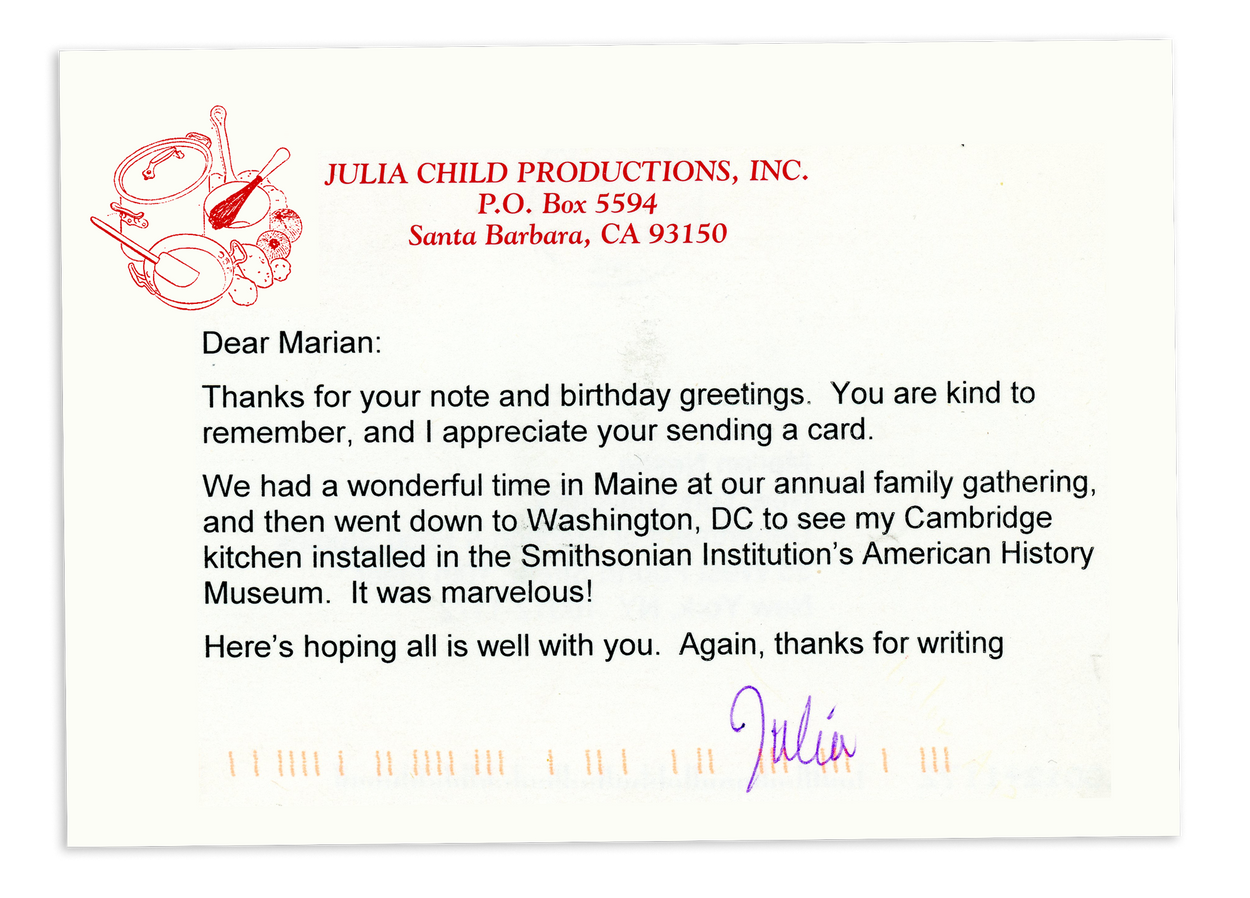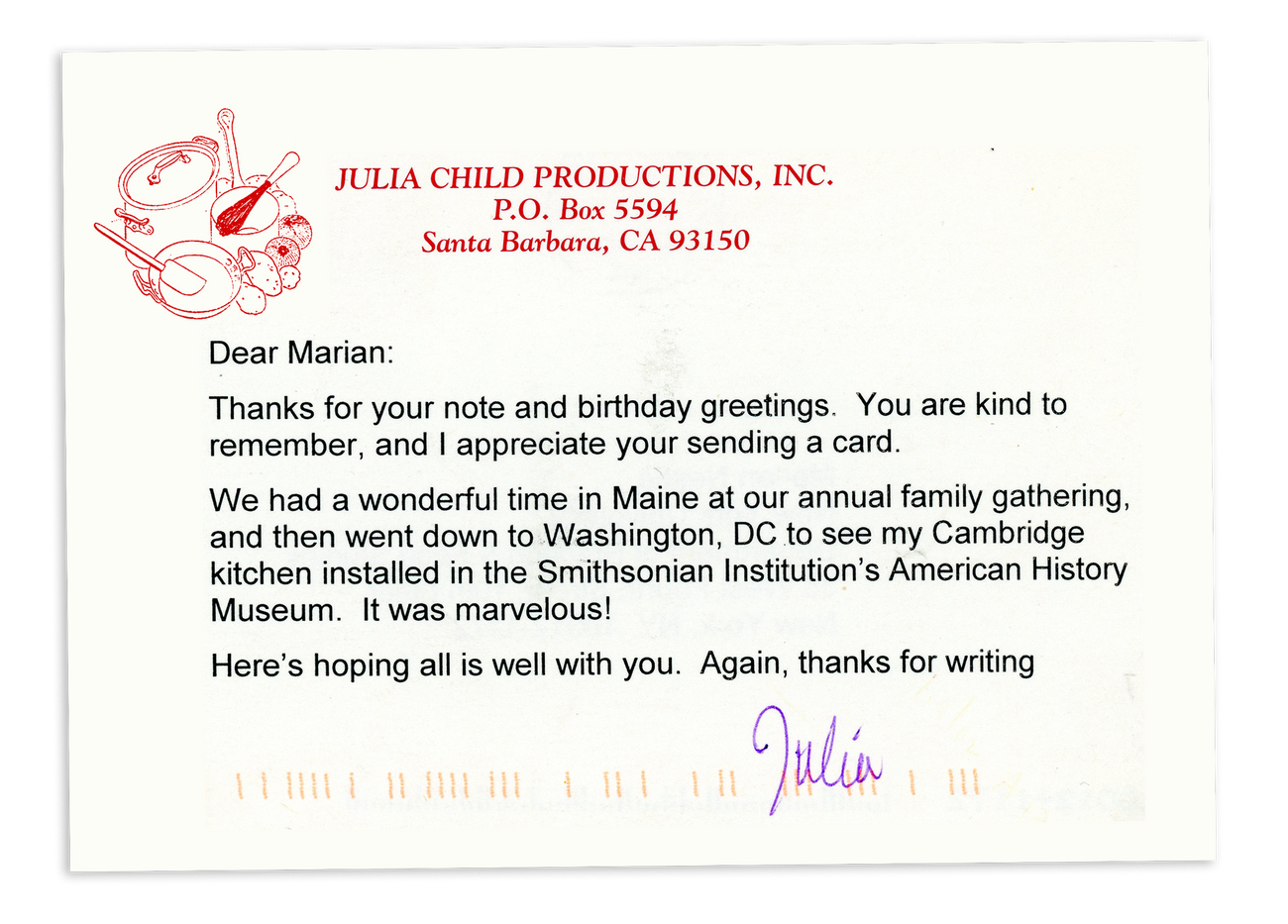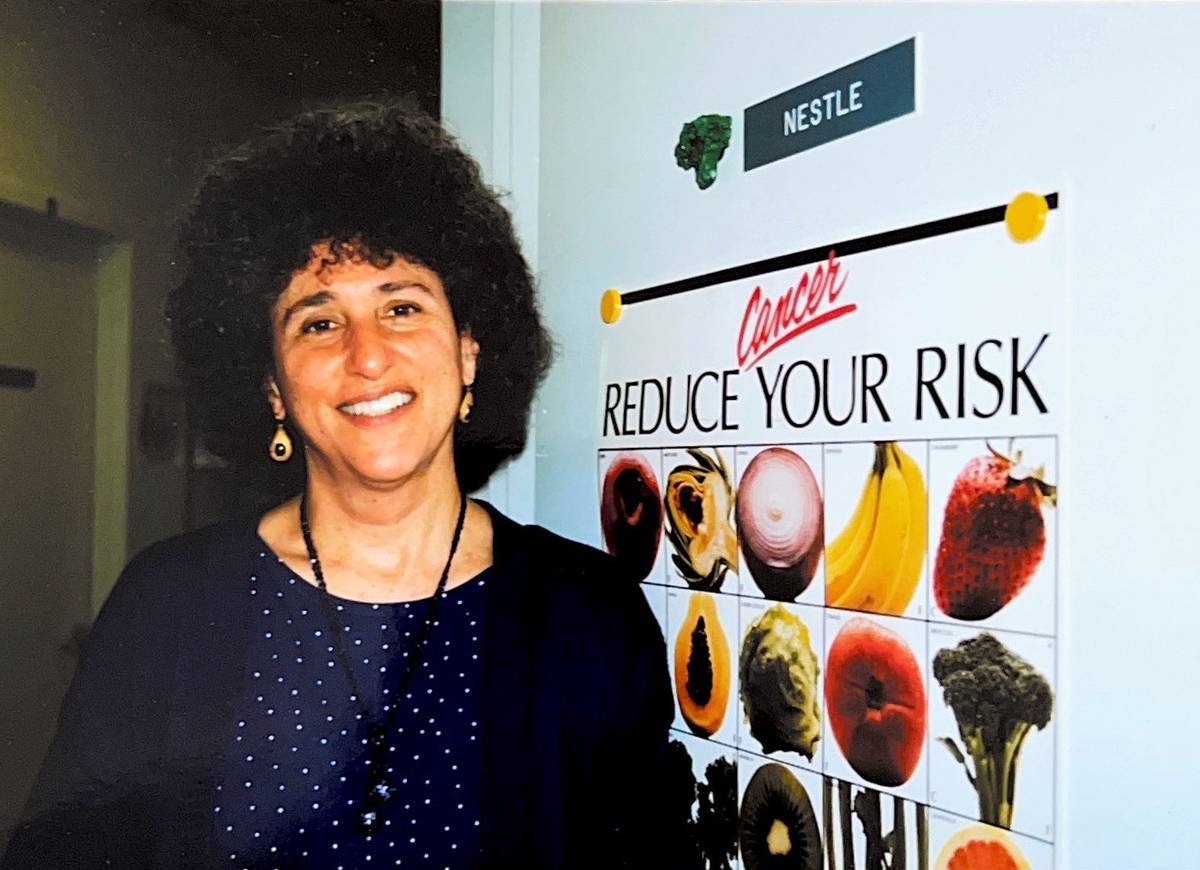My Dinner With Julia Child
The bestselling cookbook author hosts a dinner party for someone she considers an ‘enemy of food’




Everyone in the food world has a Julia Child story. Mine began with meeting Nancy Jenkins at the 1991 Oldways conference in Beverly Hills. By that time, Julia was so famous for writing Mastering the Art of French Cooking and for her French Chef cooking show on television that she was identifiable by just her first name. She was equally famous for her disdain for nutritionists, who, she frequently stated, were ruining food for everyone else. The eat-less-fat message of the Surgeon General’s Report had induced complaints about what she cooked: “Here comes Julia, with all the cream and butter.” Nutritionists, she said, were responsible for the death of gastronomy in the United States. This, she said, was an unnecessary tragedy: “We should enjoy food and have fun.”
I think so too, but am thoroughly convinced that healthy food can—and should—be delicious, enjoyable, and fun. After hearing me speak at that meeting, Nancy had an inspired, if overly optimistic, idea: “If Julia met you, she might change her mind about nutritionists.” Would I be willing to meet with Julia Child? Would I ever! During my Berkeley years of competitive home cooking, I had used my copy of Mastering so much that its pages were stained, spattered, and stuck together, and its binding was falling apart. I loved watching her on TV, and am still in awe of her dribbling hot sugar syrup over a bowl to create a brittle caramel cage—something I would never dare try. Nancy offered to host a dinner party to introduce me to Julia. She set a date in December, months in advance. I felt like I had won the lottery.
Those months went by without a word. A few days before the scheduled date, I called Nancy to make sure we were still on.
“Didn’t anyone tell you?” she said. “I broke my foot.”
Oh no! I managed to stifle my disappointment long enough to commiserate about her injury before blurting out what was really on my mind: “I guess this means the dinner with Julia is off?”
“Didn’t anyone tell you? Julia is hosting the dinner at her house.”
No, nobody had told me that Julia Child would be cooking dinner for me. I could hardly believe it.

The evening arrived, cold and snowy. Greg Drescher came to collect me from where I was staying in Cambridge and told me who else would be there: Dun Gifford; Barbara Haber, the curator of Radcliffe’s Schlesinger Library; Rebecca Alssid, the director of Boston University’s master’s program in gastronomy (founded at Julia’s instigation); and their spouses. Meeting Barbara and Rebecca would be a bonus; I was envious of BU’s gastronomy program and the Schlesinger’s cookbook collection and wished we had both at NYU. Paul Child would not be there; he was already in a nursing home. Nancy, on crutches and unable to get around in the snow, could not join us.
Greg and I walked in through a side door straight into Julia’s kitchen, the very one now on exhibit at the Smithsonian Institution in Washington, D.C. The other guests around the table stared at us. Greg and I sat down. “And now,” Julia said in her warbly inimitable (by me) voice, “Marion will introduce herself.” That felt like an opening salvo; it did not feel like a warm welcome. I did my best to say who I was and how much I cared about good food, but could do nothing to reduce the tension. Someone had brought a salad as the first course, and we got through that painlessly, but then Julia served the main course. I am not a vegetarian but prefer largely plant-based diets, so I was unprepared for what came next—the largest slice of beef I’d been given in years, exquisitely cooked, but far more than I wanted. As Julia put it on my plate, she said, “Now, there’s nothing like a good piece of meat, is there?” Then came heavily buttered mashed potatoes, also delicious, this time presented with the remark “Butter makes everything better, doesn’t it?” Everyone stared at me. What was this nutritionist going to do? Reader, I ate it. Of course I did.
I don’t remember the evening ever feeling comfortable. I had brought my battered copy of Mastering for Julia to sign, thinking that its signs of heavy use would please her. Not a chance. She signed it grudgingly: “Bon Appétit to Marion. Julia Child, Cambridge Mass. Dec. 14, 1991.” Still, I consider it a treasure. When I proudly showed it to Marvin Taylor, the curator of the NYU library’s food studies collection, he arranged to have the book rebound.
Most people who knew Julia cannot believe this story. She was universally adored for her charm and hospitality. Her behavior to me that night seemed so out of character. Couldn’t she tell how much I admired her? Couldn’t she see that I appreciated delicious food as much as she did? Years later, when I was in Christchurch, New Zealand, for a conference, I visited Julia’s longtime assistant, Stephanie Hersh, who had moved there. At last I could find out what that evening was all about. Stephanie confirmed my impression: Julia had felt trapped into having to meet and prepare dinner for someone she thought of as an enemy of food.
Over the next few years Julia behaved more politely to me but remained suspicious. In 1995, when my department was trying to find a faculty member to head up our new food studies programs, I wrote to ask her for suggestions. Her reply included these comments:
My great concern with a lot of these academic and administrative positions is that often the people in them have no idea of how really good food is supposed to taste. Three or four years ago, when we had our first AIWF “Taste and Health” meeting here in Boston, some of the nutritionists obviously had no interest in food at all! They did not find it interesting or fun, and felt that food was only to be eaten for survival. They recommended frozen string beans (there is nothing more doleful) because they had the proper vitamins, et cetera, and never considered the flavor or appearance! ... Meanwhile, good luck with your search.
Once NYU’s food studies programs were under way, however, Marian Burros quoted Julia as “delighted” by the creation of these programs. When we invited her to a party to celebrate the construction of our new, state-of-the-art teaching kitchen, I mentioned that her sponsorship of Boston University’s gastronomy program had inspired us to create our own programs. In response, she wrote: “I am flattered that you credit the inspiration to me, but think that you should be proud indeed of your accomplishments!”
Later Julia Child wrote an endorsement for my book Food Politics when its first edition came out in 2002. Because she rarely endorsed books, I was touched that her publicist, Fern Berman, had been able to convince her to do this one. Her blurb read:
What a book this is! Of course we have always suspected and known some of the truth, but never in such bold detail! In this fascinating book, we learn how powerful, intrusive, influential, and invasive big industry is and how alert we must constantly be to prevent it from influencing not only our own personal nutritional choices but those of our government agencies. Marion Nestle has presented us with a courageous and masterful exposé.
Julia and I had come a long way since that dinner in 1991. I never had the slightest effect on her low opinion of nutritionists in general, but I was pleased that she considered me an exception.
Excerpted from Slow Cooked: An Unexpected Life in Food Politics by Marion Nestle. Published by the University of California Press. Copyright © 2022
Marion Nestle is the Paulette Goddard Professor of Nutrition, Food Studies, and Public Health, Emerita, at New York University and author of a wide range of books about the politics of food, nutrition, health, and the environment.